Serkan Musellim
Prototype-based Domain Generalization Framework for Subject-Independent Brain-Computer Interfaces
Apr 15, 2022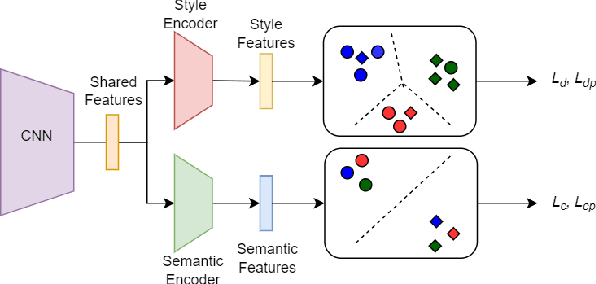
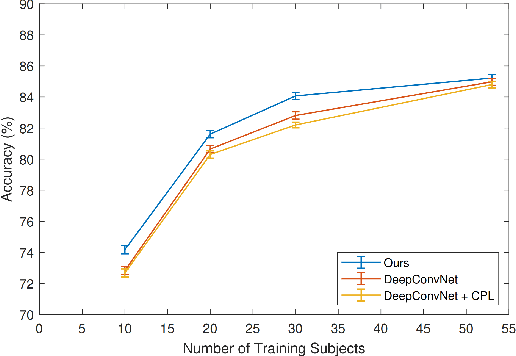
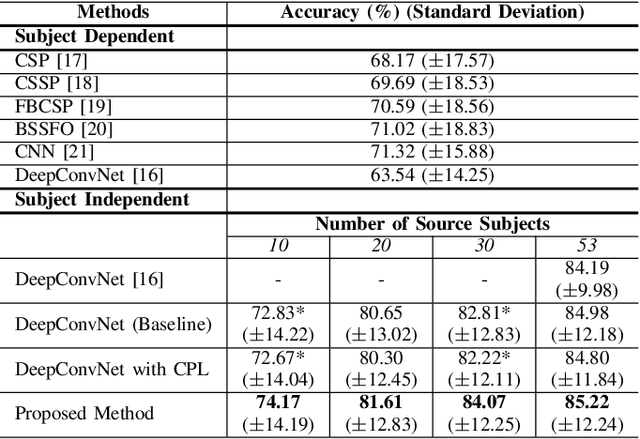
Abstract:Brain-computer interface (BCI) is challenging to use in practice due to the inter/intra-subject variability of electroencephalography (EEG). The BCI system, in general, necessitates a calibration technique to obtain subject/session-specific data in order to tune the model each time the system is utilized. This issue is acknowledged as a key hindrance to BCI, and a new strategy based on domain generalization has recently evolved to address it. In light of this, we've concentrated on developing an EEG classification framework that can be applied directly to data from unknown domains (i.e. subjects), using only data acquired from separate subjects previously. For this purpose, in this paper, we proposed a framework that employs the open-set recognition technique as an auxiliary task to learn subject-specific style features from the source dataset while helping the shared feature extractor with mapping the features of the unseen target dataset as a new unseen domain. Our aim is to impose cross-instance style in-variance in the same domain and reduce the open space risk on the potential unseen subject in order to improve the generalization ability of the shared feature extractor. Our experiments showed that using the domain information as an auxiliary network increases the generalization performance.
Confidence-Aware Subject-to-Subject Transfer Learning for Brain-Computer Interface
Dec 15, 2021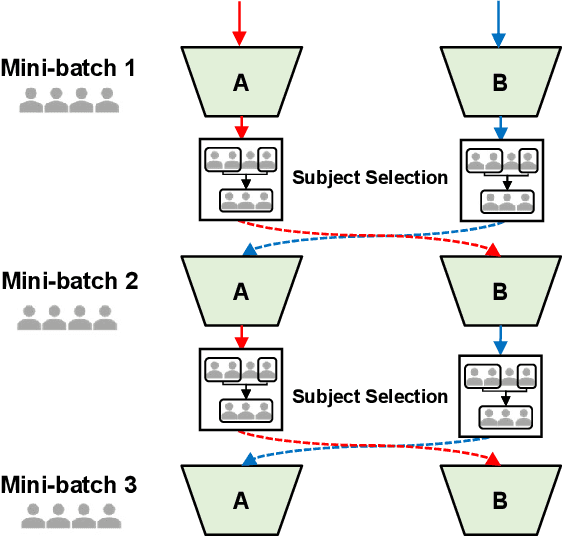

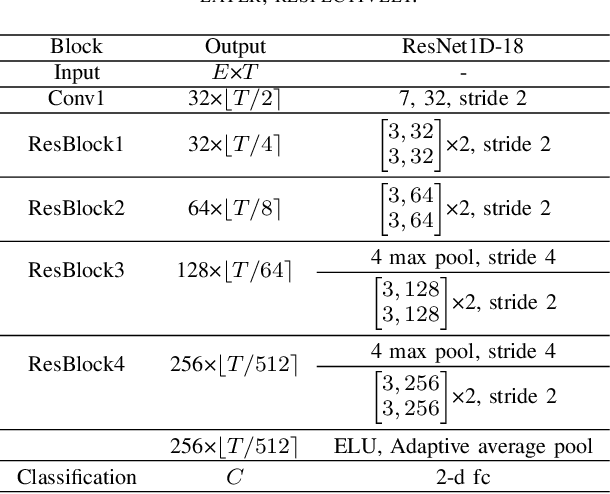

Abstract:The inter/intra-subject variability of electroencephalography (EEG) makes the practical use of the brain-computer interface (BCI) difficult. In general, the BCI system requires a calibration procedure to tune the model every time the system is used. This problem is recognized as a major obstacle to BCI, and to overcome it, approaches based on transfer learning (TL) have recently emerged. However, many BCI paradigms are limited in that they consist of a structure that shows labels first and then measures "imagery", the negative effects of source subjects containing data that do not contain control signals have been ignored in many cases of the subject-to-subject TL process. The main purpose of this paper is to propose a method of excluding subjects that are expected to have a negative impact on subject-to-subject TL training, which generally uses data from as many subjects as possible. In this paper, we proposed a BCI framework using only high-confidence subjects for TL training. In our framework, a deep neural network selects useful subjects for the TL process and excludes noisy subjects, using a co-teaching algorithm based on the small-loss trick. We experimented with leave-one-subject-out validation on two public datasets (2020 international BCI competition track 4 and OpenBMI dataset). Our experimental results showed that confidence-aware TL, which selects subjects with small loss instances, improves the generalization performance of BCI.
 Add to Chrome
Add to Chrome Add to Firefox
Add to Firefox Add to Edge
Add to Edge